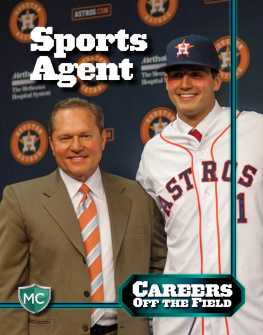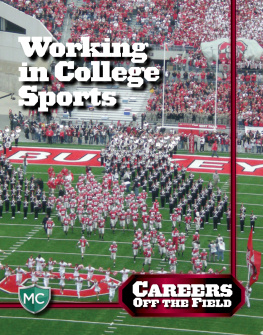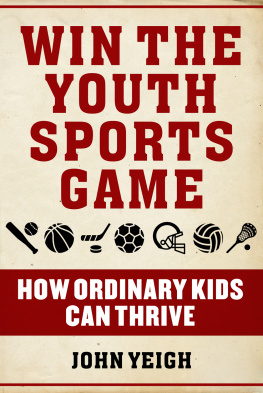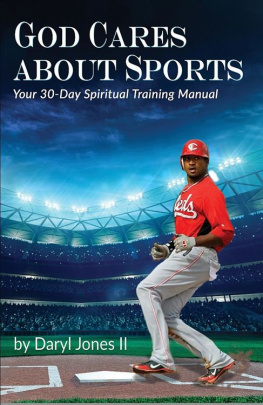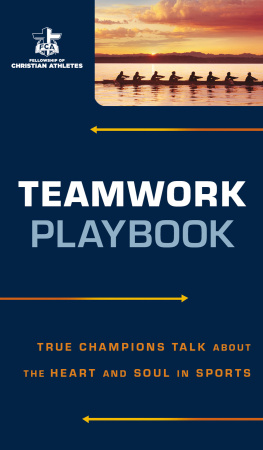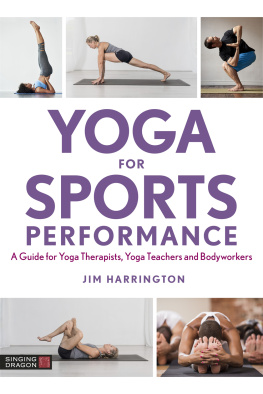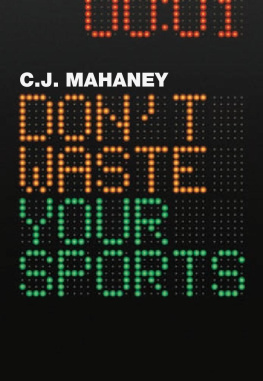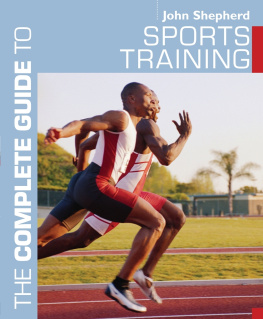Table of Contents
The Tao of Sports
By Bob Mitchell
Copyright 2013 by Bob Mitchell
Cover Copyright 2013 by Ginny Glass and Untreed Reads Publishing
Cover image courtesy of http://sharegfx.net/ under a CC Attribution license.
The author is hereby established as the sole holder of the copyright. Either the publisher (Untreed Reads) or author may enforce copyrights to the fullest extent.
Previously published in print, 1997.
This ebook is licensed for your personal enjoyment only. This ebook may not be resold, reproduced or transmitted by any means in any form or given away to other people without specific permission from the author and/or publisher. If you would like to share this book with another person, please purchase an additional copy for each person you share it with. If youre reading this book and did not purchase it, or it was not purchased for your use only, then please return to your ebook retailer and purchase your own copy. Thank you for respecting the hard work of this author.
Also by Bob Mitchell and Untreed Reads Publishing
Everything on the Line
http://www.untreedreads.com
The Tao of Sports
Bob Mitchell
If Lao-tzu, who wrote the original Tao, had seen DiMaggio and Griffey, Wilt and Michael, Jim Brown and Joe Montana, he might have been moved to compose a sports version of his classic. Bob Mitchell has seen them and has done it. The Tao of Sports will improve your gameand your mind.
Dick Schaap, legendary sportscaster, ABC, ESPN, etc.
Sports is the defining metaphor of our time. In The Tao of Sports, Bob Mitchell shows with intense clarity and humor how sports can be a doorway for spiritual awareness and transformation.
Dean Ornish, M.D., author of Eat More, Weigh Less
To Noah, Jenny, and Sarah, my amazing children who have made me so very proud of how they play the Game of Life.
FOREWORD
I wont pretend that Im not prejudiced in favor of my brothers free, imaginative, and totally wonderful adaptation of the Tao Te Ching. It strikes just the right tone for a sacred text about sports: breezy, funny, practical, ironic when it needs to be, never on stilts or behind a pulpita Tao Te Ching that wears jeans and talks with a slight Brooklyn accent. It probably wont make many Taoists into sports fanatics. But it may make many sports fanatics realize that they are already closet Taioists.
Tao Te Ching (pronounced, more or less, dow deh jing) can be translated as The Book of the Way and of How It Manifests Itself in the World. Its legendary author, Lao-tzu, may have lived in the sixth century B.C.E., or may not have lived at all. It doesnt really matter who wrote it or who put it together. What matters is the book: the classic manual on the art of living and one of the wonders of the world. In eighty-one brief chapters, the Tao Te Ching looks at the basic predicament of being alive and gives advice that imparts balance and perspective, a serene and generous spirit. It teaches how to work for the good with the effortless skill that comes from being in accord with the Tao (the basic principle of the universe) and applies equally to good government and sexual love, to child-rearing, business, and ecology.
It is particularly appropriate to have a Tao of Sports, because sports provides many of us with our first and strongest conscious experience of being in the Tao or in the zonein the current of energy where the right action happens by itself, effortlessly. Somehow the innate intelligence of the body takes over: the ball throws the ball, the racquet swings the racquet. This is always a magical experience. It cant be summoned by the will, and there is no formula for it. If you think about it, you lose it. It comes and goes at its own pleasure. When it comes, we are thrilled and grateful. When it is gone, we try to do our ordinary best.
It may seem odd at first to think of sports as a paradigm for life. But any part of human activity, as in a hologram, contains the whole. And it may be easier to learn the essential wisdom life has to teach us by paying closer attention to an activity that we passionately love. Wisdom is already there, in the perfect drop shot, in the blown lay-up. All we have to do is take the time to notice it. If only the lessons of life were as clear as the lessons of sports. But they are!
Listen to the spirit of Lao-tzu in its latest incarnation, speaking through the voice of Bob Mitchell, passionate sports fanatic and attentive student of the Tao.
Stephen Mitchell
INTRODUCTION
Some things were just meant to be.
Take this book.
Simply put, two phenomena that occurred during my lifetime have conspired in the conception and writing of The Tao of Sports. The first has been happening since the initial trimester of 1944, when I was just a fetus. It was to that period that I have traced my unwavering, unquenchable passion for sports. (Although I didnt begin my baseball-card collection until eight or nine years later, Im convinced that I was reading box scores overor throughmy mothers shoulder during the early stages of her pregnancy.)
The second happened when I first laid eyes on my brothers brilliant translation of Lao-tzus Tao Te Ching. Prior to that reading, there was only a handful of other writers who had elicited in me the same profound feeling that can only be characterized by the word astonishment: Shakespeare, Poe, Dostoevsky, Mallarm, Rilke. During my first reading of the Tao Te Ching (and my second and third and hundredth, for that matter), I was struck by the utter simplicity, beauty, practicality, and wisdom of language and message.
Further, I realized that at some point, I had begun reading the text through the prism of my own personal sporting experiences. With some surprise, I began to see that it all fit, that the lessons from the Tao that could be applied to life could equally be applied, beautifully and with almost uncanny consistency, to all the nooks and crannies of sports. That every chapter of this ancient text corresponds to problems, challenges, and situations confronted by the modern athlete. (I have, in fact, replaced the original numbers with specific chapter titles.) And that many of the questions I had posed while following and participating in sports during my fifty-one years (plus, of course, the fetal period) were answered, thanks to Lao-tzu and my brother.
What has resulted from the confluence of these two passionate experiences is a book that takes the basic themes and rhythms of the Tao Te Ching and transposes them, in my own language, to the specific arena of sports. A book that, as an antidote to all the recent attention being showered on the underbelly of sports (grandstanding, violence, incivility, greed), can have us all thinking instead about issues like humility, respect, balance, and compassion. And also ideally, a book that human beings intensely involved in sports and life will find helpful, perhaps inspirational, in their continuing pursuit and understanding of self-knowledge and excellence.
AUTHORS NOTE
In a number of chapters, I refer to the athlete (or the true athlete) alternately as he or she. This is not a reflection of my desire to avoid the unwieldy he/she expression; rather, it reflects the fact that the lessons of The Tao of Sports are meant equally for men and women, both of whom share this, as (virtually) every other human experience. The reader should, of course, feel free to substitute one pronoun for the otheras he/she wishes, and at his/her discretion.
MYSTERY


